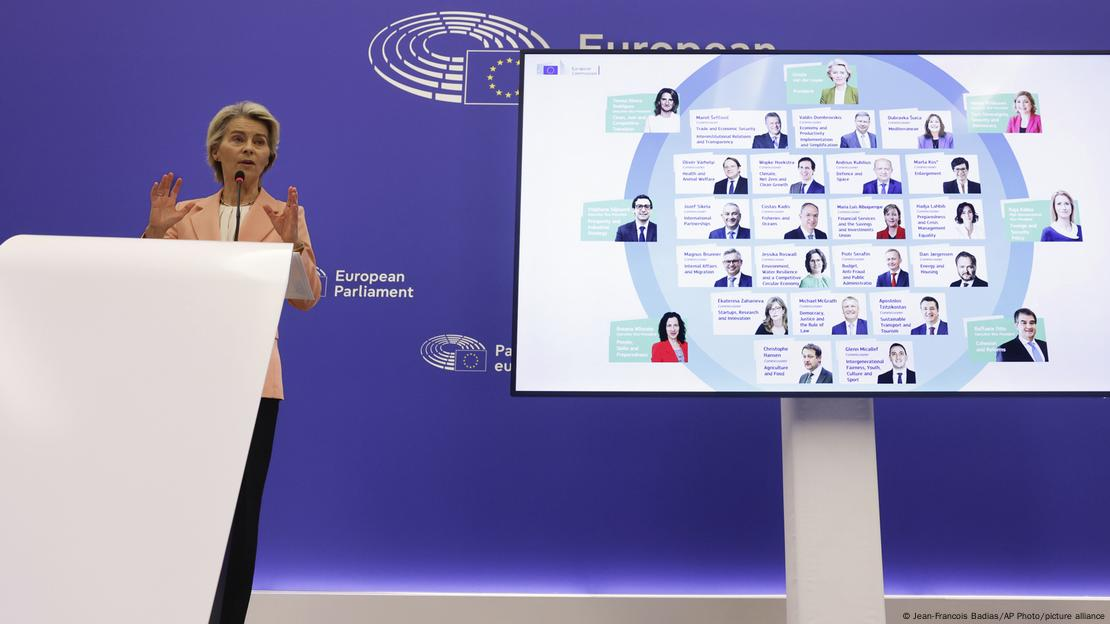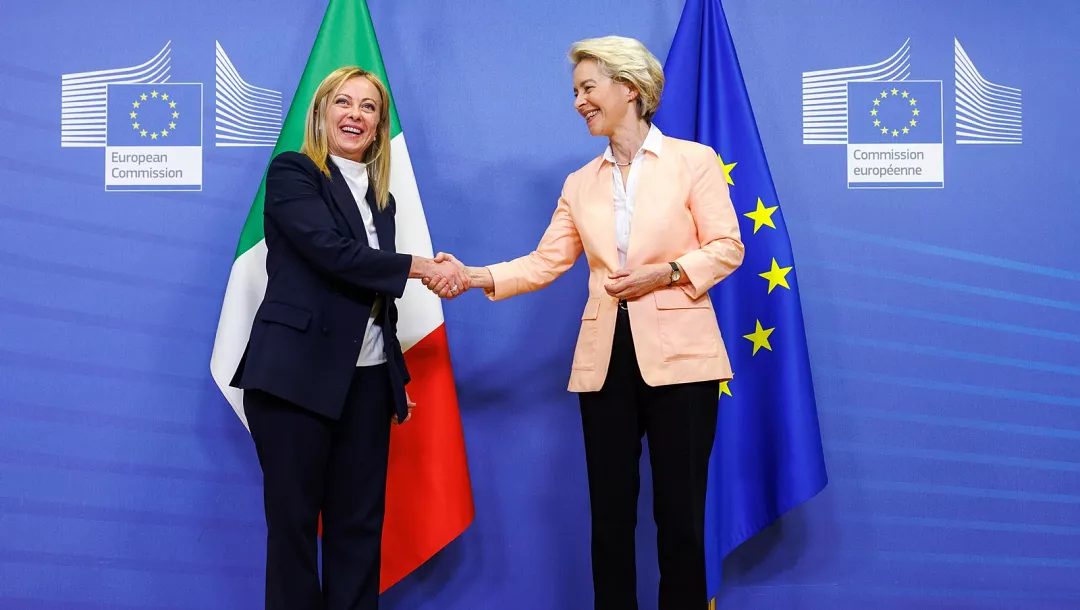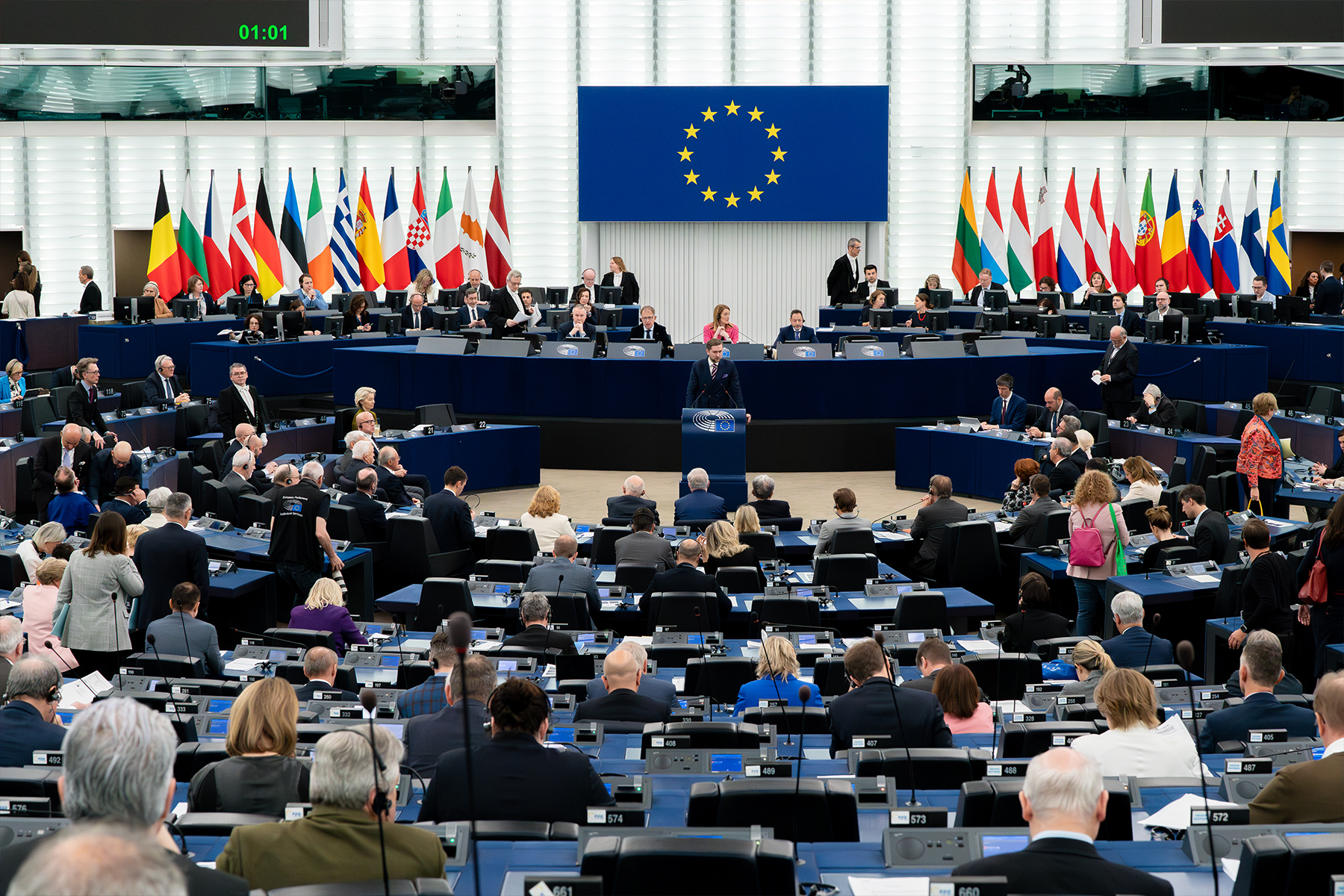After Political Battles: Will the New European Commission Shift to the Right?

“Von der Leyen has been President of the European Commission since 2019.”
European Commission President Ursula von der Leyen has announced her team that will lead the EU’s most powerful institution for the next five years, with the commission set to begin work by the end of the year.
Although women make up the majority of the top posts, the overall composition of the Commission falls short of von der Leyen’s goal of gender parity and is politically leaning to the right.
Three of the six prominent executive vice-president posts have gone to France, Spain and Italy, reflecting the order of the EU member states.
The new European Commission thus presents a major challenge amidst current political transformations, raising questions about how these changes will impact European policies and social rights in the coming years.
Remarkable Rise
The new European Commission, headed by Ursula von der Leyen, announced a few days ago its composition, which is considered the most right-wing since the founding of the European Union, following the remarkable rise of right-wing parties in the European Parliament elections held last June.
Von der Leyen's centre-right European People’s Party (EPP) got the lion's share — 15 out of 27, including herself, in addition to 5 liberals, 4 socialists, two far-right parties, and one independent from Slovakia.
Most importantly, the far-right Brothers of Italy party, headed by Giorgia Meloni, will hold a prominent position in the new composition.
Although Teresa Ribera, the deputy prime minister of the Spanish Socialist government, will hold the position of first executive vice-president, commissioners from right-wing parties control the most important portfolios.
These portfolios include areas such as migration, the environment, relations with neighboring countries, the internal market, security, health and industrial development.
In turn, the Socialist bloc in the European Parliament warned von der Leyen that any shift to the right would face strong opposition, especially when the confidence vote is held by parliamentary committees.
The Socialists also expressed concern about the appointment of Raffaele Vito of the Brothers of Italy party as the Commission’s vice-president in charge of reform policy, noting that this appointment represents a major problem.
Raffaele Vito is the first far-right politician to hold this high-ranking position in the European Commission.
Meanwhile, spokesmen for the Greens, Liberals, and Social Democrats announced that they would not give him confidence in parliamentary committees.
Observers pointed out that the fact that the portfolio of Internal Affairs and Migration went to Austria, a country that has been condemned for unlawfully extending border controls, was significant, although not surprising.
This portfolio has also become an important tool in disputes with some countries, especially Hungary, over issues of rule of law and corruption, where the EU has stopped disbursing these funds to force governments to amend national laws.
Among the new changes are the creation of a housing portfolio under the Danish socialist Dan Jorgensen, along with energy, in addition to a portfolio for relations with Mediterranean countries under the Croatian conservative Dubravka Suica, which also has the authority to deal with migration and conclude agreements with countries of the South to stop the flow of illegal immigrants into the bloc.
A new defence and space portfolio has also been introduced under the Lithuanian conservative Andrius Kubilius.
Behind the scenes, negotiations over the posts were thorny until the last moment.
Last week, Frenchman Thierry Breton announced his resignation as European Commissioner for the Internal Market following disagreements with von der Leyen.
He was replaced by the outgoing foreign minister, Stephane Sejourne, who is close to President Emmanuel Macron, who chose him for the powerful post.

New Commission
Introducing the new Commission line-up in Strasbourg last week, von der Leyen said: “Prosperity, security and democracy are the main priorities of the new EU government.”
She also stressed her commitment to improving competitiveness, which has been one of the EU’s main weaknesses for years.
This was confirmed by a recent report by former European Central Bank Governor Mario Draghi, which von der Leyen said she would use as a roadmap for her second term.
Von der Leyen has been President of the European Commission since 2019.
She will remain in office for another five years, based on a decision by EU leaders and approved by the Parliament last July.
The new structure of the Commission, which acts as the EU’s executive body, includes six vice presidents, with a balanced distribution between the European regions and the major political parties.
Von der Leyen has not achieved full gender parity, despite repeated calls for greater balance and equality, with EU member states sending 16 men to Brussels compared to 11 women.
However, von der Leyen has reversed the equation regarding the status of her deputies, with only four women and two men in leadership positions.
The new executive must be approved by MEPs in the coming weeks before taking office.
Many MEPs want to remove the Hungarian candidate, Oliver Varhelyi, who is accused of undermining the European Parliament and supporting the positions of nationalist Prime Minister Viktor Orban.
While von der Leyen has expressed her desire for the new executive to start its work as soon as possible, she has so far avoided announcing a timetable.
The new team is expected to be approved in early December, given the MEP’s sitting schedule.
Former Portuguese Prime Minister Antonio Costa is also set to become the next president of the European Council, which will hold its co-presidency summits in December.
The post of High Representative for Foreign Affairs and Security Policy will be held by former Estonian Prime Minister Kaja Kallas, known for her hard-right positions, ensuring a balanced geographical and political distribution of posts across the bloc.

Difficult Challenges
Despite her influence within the EU, von der Leyen faces tough domestic issues, including global uncertainty and political instability in France and Germany.
At the same time, the EU is struggling to meet its ambitious targets for reducing greenhouse gas emissions by 2030.
In addition to Russia's war in Ukraine, the potential return of Donald Trump as US president, competition from China, stagnant economic growth, a rapidly aging population, and a steady rise in asylum seekers.
Three months after European elections marked by a surge in the far right, the left and NGOs fear that the Commission's focus on economic issues is at the expense of the climate ambitions achieved during the previous term.

In turn, political analyst Basel Mansour explained to Al-Estiklal that “the political landscape in the European Union has become much more complicated.”
“The European shift to the right is already a reality, especially after the increase in the influence of far-right forces in France, Germany, and Italy,” he added.
“This shift is consistent with a broader shift to the right in EU member states, with far-right parties forming part of national governments in eight of the EU’s 27 member states,” he said.
Mr. Mansour concluded that “the new European Commission’s shift to the right could have a significant impact on policies related to climate, migration, enlargement and the budget .”










